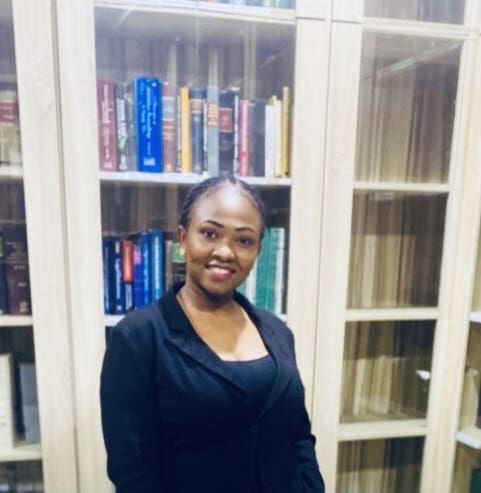Strengthening Global Alliances Against FGM/C
Posted: October 16. 2024
by Adaobi Iyiegbu
I learned the African proverb about broomsticks early in life and it taught me the importance of collaboration and the need to shun division: a single broomstick is easily breakable, but a bundle of broomsticks is unbreakable! This demonstrates that we can achieve more through collaboration than through individual efforts, if countries, governments, NGOs, local communities, survivors, and activists worldwide unite against female genital mutilation/cutting (FGM/C), then we would become an unstoppable force.
FGM/C is a gross violation of the rights of women and girls, deeply rooted in inequality. It is one of many harmful traditional practices affecting millions of women and girls globally. According to a recent United Nations report, 30 million girls face an increased risk of FGM/C in 2024 compared to 2016. While 51 countries out of 92 countries where FGM/C is practiced, have prohibited FGM/C under their national laws, enforcement of these anti-FGM/C laws remains a significant challenge. The alarming gap between policy and implementation highlights the urgent need for a fortified global collaboration.
The Gambia’s anti-FGM/C Law victory demonstrated the power of global alliances. The move to repeal was met with strong opposition, not only by local activism but also by international voices united in resistance. This flame of unity should not be allowed to go dim but ought to be strengthened by ensuring that no community where FGM/C is practiced is left behind, that no one is left ignorant, no survivor is left unheard, and that resources are made available to enable strategic and effective activism against FGM/C.
It is for this reason that I remain grateful to The U.S. End FGM/C Network for providing me with a platform to volunteer and learn on a global level how to effectively and strategically advocate against FGM/C and I eagerly anticipate their upcoming hybrid conference, “Global Collaboration to End FGM/C,” on October 29th, 2024 in Washington, DC, where collaborative strategies to combat FGM/C globally will be developed.
Conferences like this play significant roles in creating awareness and fostering collaborations. With nearly 4.4 million girls at risk of undergoing FGM/C this year alone and millions of lives affected in 30 countries across Africa, the Middle East, and parts of Asia, FGM/C is a universal issue and all hands ought to be on deck to combat this violation. Even in the U.S. and Europe, the issue persists with low enforcement of anti-FGM/C laws.
Reflecting on the United Nation’s goal to fully eliminate FGM/C by 2030 under Sustainable Development Goal 5, which seems nearly unachievable with the reported increase, global alliances must ask salient questions such as:
- What successful strategies from countries that have made significant progress in combating FGM/C can be shared and adapted globally?
- How can we enhance collaboration between governments, NGOs, and local communities to promote awareness and education about FGM/C?
- What role can international organizations play in providing resources and support to nations struggling with FGM/C prevalence?
By addressing these questions, we can better understand the challenges and opportunities in our pursuit of the global eradication of FGM/C. Collaboration can be enhanced through regular dialogue, joint campaigns, and training programs that empower local communities. Strategic tackling of religious and cultural resistance by encouraging community-led initiatives that include local and religious leaders and integration of anti-FGM/C education in schools. International bodies can also help facilitate partnerships between countries, share research data, and advocate for global policies that support the eradication of FGM/C while leveraging online platforms to facilitate grassroots movements and connect with activists worldwide thereby fostering a sense of global solidarity against FGM/C.
While we can never do too much in our pursuit of eradicating FGM/C, there is always more to be done. Everyone has a role to play—whether you are an activist, survivor, policymaker, or part of an organization. In unity, we can amplify our voices and resources, creating a world where FGM/C is a thing of the past. Like the bundle of broomsticks, let’s stand together as a global community committed to ending this violation of women’s rights. Together, we can make a lasting difference.

Adaobi is a Nigerian-trained lawyer and gender rights advocate passionate about raising awareness against harmful traditional practices and advocating for the eradication of female genital mutilation (FGM) in Nigeria and worldwide.
